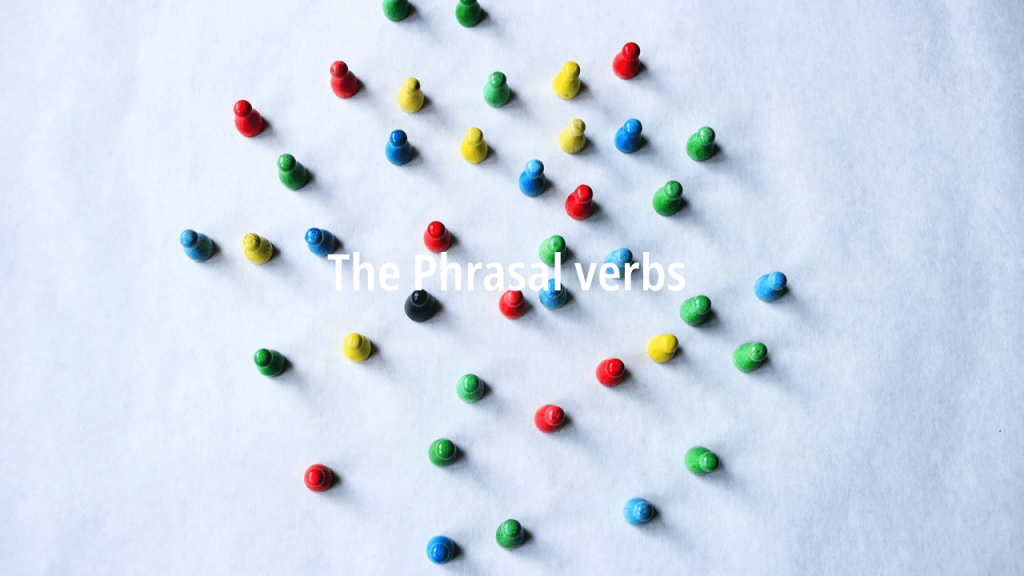What is a phrase?
A phrase is a combination of a verb and a preposition. A verb and an adverb, or a verb with both an adverb and a preposition. These verbs usually have completely different meanings from the main verb. Indigenous people use verb phrases a lot in their sentences, so knowing the most common ones will come as a surprise to your understanding. Phrase phrases are like shortcuts that express complex speech in a few words instead of long sentences.
Phrasal verbs with the verb give
Give away
“He’s a generous man. He gives away half of his salary to charity each month. ”
Give back give something back to someone
“Can you give back that book I lent you?”
Give in to collapse
“The floor gave in after the flood.”
Give out play
“Can you give out these books to the rest of the class please?”
Give up Assign the position of one person to another
“When I’m on the bus, I rarely see anyone give up their seat to the elderly
Phrase verbs with make in English
Phrase verbs with make in English
Make something up Make up a story to lie
“We all believed him when he said he’d been abducted by aliens, but apparently he made the whole thing up.”
Make up with somebody, forgive each other and return to friendship
“I’m glad to hear you and Steve have made up. There’ll be a much happier atmosphere in the office from now on! ”
Make off with something Escape with stolen things
“Bank robbers have made off with over one million pounds after an audacious daylight raid.”
Make up for something Compensate for a bad deed to someone with a good deed
“I’m taking Jean on holiday to Paris to make up for forgetting her birthday.”
Phrase verbs with run
Run into See someone by chance
“I ran into an old friend of mine yesterday while I was out shopping.”
Run out of finish
“We’ve run out of coffee again. Could you get some on your way home?”
Run up pay
“He ran up a huge bill at dinner.”
Run away with leave someone, escape from someone
“Her husband ran away with the secretary.”
Run over to crash into someone
“He’s still very upset after running over the cat last night.”
Run through to summarize
“OK, can we just run through the main points again?”
Run on energy supply
“Those new cars run on electricity, but they are so expensive.”
Run up against having trouble
“The company ran up against some problems initially, but now things are operating smoothly.”
Phrase verbs with go
Go without something doing work without having something useful or necessary
“I don’t mind going without air conditioning for a few days, but you really need to get the plumbing fixed in the bathroom.”
Go over something to feel better after an unpleasant event or illness
“It took me a while to get over the break up. Even now, I still think of him sometimes. ”
Go out leaving home to attend a social event
“We used to go out to bars and restaurants all the time, but it all changes when you have children.”
Go out with somebody Romantic date with fiancé
“Are you going out with anyone at the moment? I’d love to take you for a meal sometime. ”
Phrasal verbs with come
Come across surprise
“I came across that old watch of mine when I was cleaning out the drawers.”
Come across
“She comes across as a really confident person.”
Come into to obtain
“John has been buying some flashy cars lately. He must have come into a bit of money. ”
Come up with invent, develop, think
“I’m finding it difficult to come up with new ideas.”
Come up against facing various problems
“We’ve come up against several political and legal problems.”
Come down with succumbing to illness or virus
“I don’t feel very well today. I think I’ve come down with the flu. ”
Come back to remember
“I could not remember her name, but after a few minutes it came back to me.”
Phrase phrases with look
Look into research
“The police are looking into reports of a robbery last night.”
Look up Looking for specific information
“Can you look up John’s phone number for me please?”
Look forward to being eager
“I am looking forward to seeing my family again after six months of living abroad.”
Look out be careful
“Look out, there’s a car coming!”
Look after take care
“Can you look after my cat while I’m away?”
Look on watch
“The crowd looked on as the firm tried to put out the fire.”
Look up to admire, to respect
“She really looks up to her boss. He has taught her many things.”



